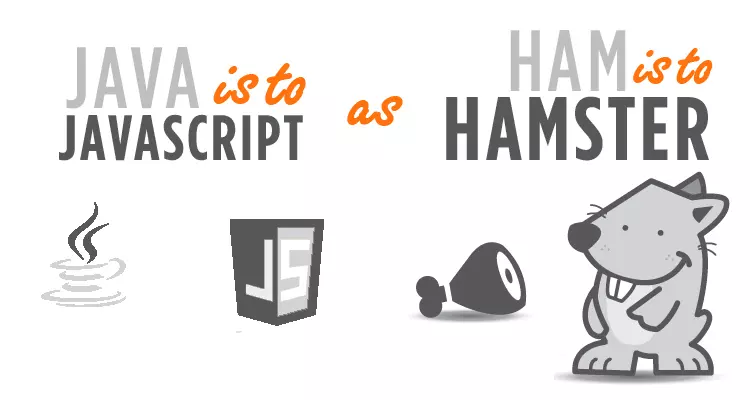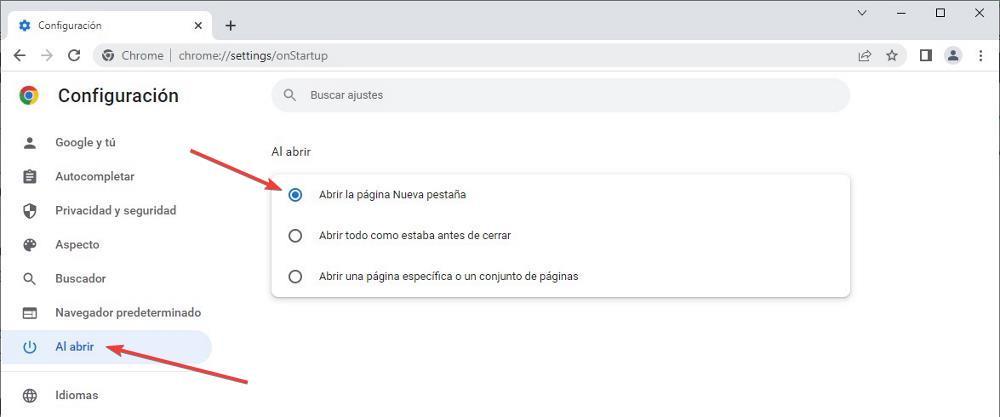
How are Java and JavaScript alike?
The first thing that will catch our attention in both programming languages is the name. However, this name does not mean that they are the same language, or even similar. JavaScript was originally called LiveScript (when it first appeared in Netscape Navigator), but since it had been created to be a Java-like language (albeit for another purpose), it finally got its new name, a name that, incidentally, it has served to take away the popularity of its alternative.
JavaScript and Java have a common linguistic root. And both are object-oriented programming languages. But these are the only similarities between the two languages, nothing more. The purpose, syntax, and even how it works are totally different.
Otherwise, Java looks just as much like JavaScript as a hamster looks like a hamón (ham, from English, ham).
And their differences?
In everything else. In addition to the syntax, and the way to program in all of them, Java is a programming language that compiles through a compiler to generate readable bytecode of the original code, and runs through a virtual machine on any computer, system or platform. Conversely, JavaScript is interpreted. Web browsers have an interpreter capable of reading and processing the instructions as they are written in the code, without the need to compile it into a low-level language. This makes scheduling and changes easier, but results in a loss of performance.
Another important difference is that Java has a static writing (each variable is defined and the type of data it will contain is indicated) while JS uses dynamic writing (that is, each variable can contain any type of data). What is this for? In the case of Java, it helps a lot with debugging and error detection.
Java can run multiple threads at the same time (you can do multiple things at the same time), whereas JavaScript works through event loops, and you cannot move to the next activity until you have completed the previous one.
Finally, at a low level, both programming languages are object-oriented, and use a technique known as “inheritance.” But nevertheless, Java works with classes (that is, it gives the compiler the instructions necessary to build the object) while JS directly clones it from the predefined prototype.
Java: a complete language to create multiplatform programs
Java development started by Sun Microsystems in 1991, although it was not until 1995, 4 years later, when it was finally released to the public. This was one of the most complete and versatile object-oriented languages, especially due to the possibility of running the same compiled executable on practically any operating system.
It is true that Java is mainly focused on desktops and servers, but it has also made its way onto the web thanks to applets. What’s more, to this day, although it is discouraged, it is still used on many platforms (such as the Social Security website, the Treasury, or Consumer Affairs) to sign documents or accept acknowledgments of receipt.
Java is not only used on PC, but it is the predominant language in Android applications. Google opted for this language, along with its virtual machines, and it has been one of the reasons for its success (and its problems, both in terms of security and performance). Java, yes, has a very important handicap, and it is its high consumption of resources, something that makes many programs slow and rude (for example, the popular jDownloader).
JavaScript: the heart of modern webs
LiveScript It was developed in Netscape, and it was in the lab for 10 long years. In the end, it saw the light of day the same year as Java, in 1995. Although, obviously, with different objectives. The renaming from LiveScript to JavaScript was a major marketing move.
It didn’t take long for developers to see the potential of this programming language. And such was its impact that it has become one of the three most important in web development, along with HTML and CSS.
Similar to what happens with Java, JS is a language specially designed for the web, but thanks to some frameworks, such as Electron, it is possible to create cross-platform desktop programs. And furthermore, thanks to NodeJS it is possible to use this language for all kinds of backend creations.
What programming language is better?
We cannot say that one programming language is better than another, since each one has its own purpose. If we are going to create a website we are not going to use Java, just as we should not use JavaScript to create a server program.
We must use Java to:
- Create all kinds of programs and applications (desktop, server, Android …)
- Create applications, programs and tools that can run smoothly on any operating system, and on any machine.
On the other hand, JavaScript should be our choice when:
- Create websites, web applications and any frontend system.
- Design games and animations that we want to run in a browser.
- Create simple backend servers (using a framework).
- Create Electron-based programs.
And which of the two should I learn? Likewise, that will depend on what we want to do. Given that both bear some similarity, the ideal would be to be able to learn to program in both programming languages, so that we can defend ourselves both when designing a website, or a PWA, and when creating a program for PC or for Android.



